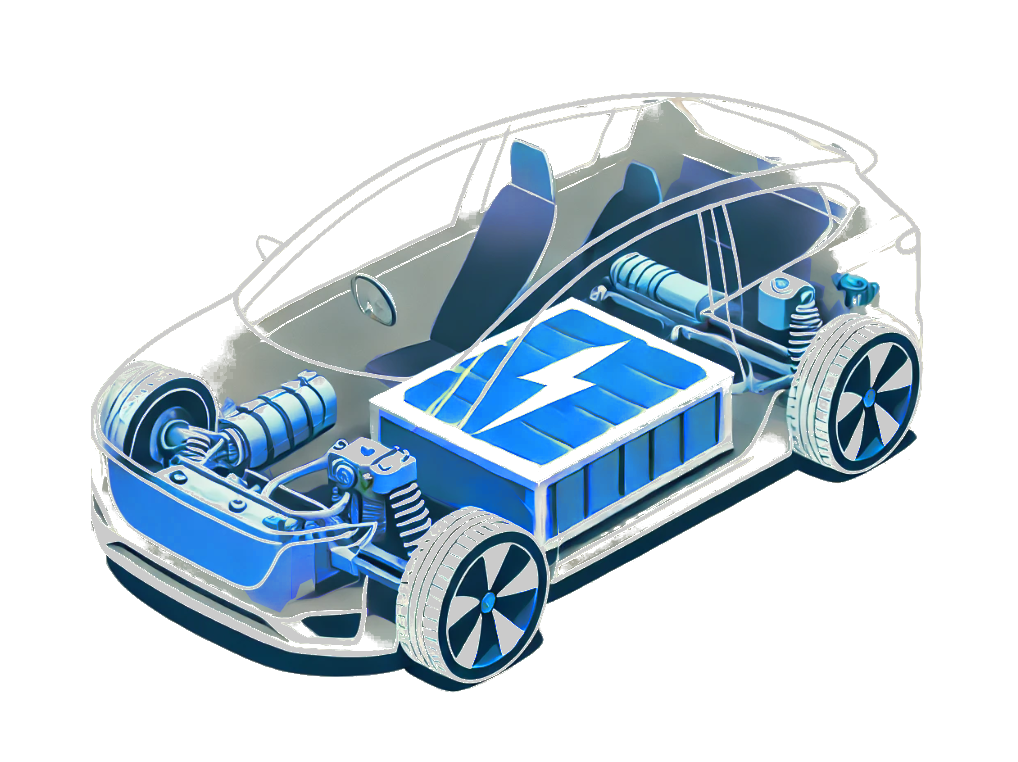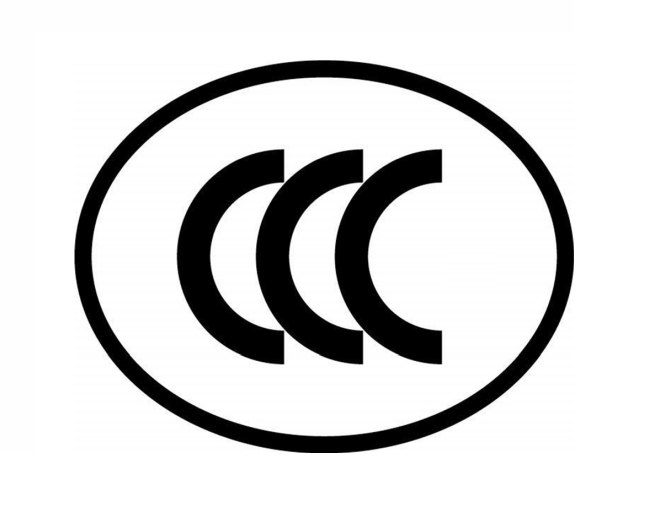New Safety Certification Program for Lithium Energy Storage Batteries launched in China
The China Quality Certification Center (CQC) has officially launched a new safety certification program for lithium batteries and battery packs used in electric energy storage systems. This certification is based on the newly established safety standard GB 44240-2024, titled “Safety requirements for lithium batteries and battery packs for electric energy storage systems.” The relevant certification rules are outlined under CQC13-464220-2025, and the program is categorized under Business Code 024033. Applications for this certification can now be submitted. Various products of the category lithium batteries and battery packs usually require China Battery registration or CCC in order to be approved for import and sale in China.

For more information on how Battery registration for China, CCC certification, the CCC Self-Declaration and voluntary CCAP or CQC certification may affect your company, or for more information about CCC certification in general, please visit our News Section where you will find current updates twice a week.
Please do not hesitate to contact us for further details and consultation. You can contact us via email, Chat, or call us (UK: +44 2071931135, Europe: +49 69 2713769150, US: +1 773 654-2673).
You can also check our free CCC-Brochure, which can be downloaded as a PDF file. The brochure also contains information on the CCC Self-Declaration and the voluntary CQC- and CCAP-Certification).
Webinar: Regulatory Changes for Automotive Batteries in China – Alternative Date
In cooperation with Shanghai Motor Vehicle Inspection Center (SMVIC) MPR is hosting a webinar on September 22, 2025, from 4:00–5:30 pm CEST (US time: 10:00–11:30 am ET / 7:00–8:30 am PT) to address the regulatory changes for automotive batteries in China.
With the latest regulatory changes published by CNCA there is a major shift from a “range competition” to a “safety trust-driven” direction for the new energy vehicle sector.

The latest regulatory changes include:
- GB/T31484-2015 (Cycle life requirements and test methods for power batteries for electric vehicles (No. 1 Amendment Order 2025)
- GB/T31486-2024
- GB38031-2025 (implementation 01.07.2026)
This webinar will focus on the regulatory changes published in GB38031-2025. The requirements for “no fire and no explosion” have been elevated to a mandatory standard for the first time. The “safety requirements” include 7 cell and 17 battery pack or system test items. Apart from “overcharge,” “external short circuit,” and “temperature cycling,” all other items have been revised or added, with 3 of them being new or significantly revised.
The webinar will be held by representatives of SMVIC via Teams in English and is free of charge.
For participation, please submit your registration via info@mpr-international.com prior to June 30, 2025.
Webinar-Code: SMVIC-Battery-2025-2
Information needed for registration are:
Email: ____________________________
Name: ____________________________
Company Name: ___________________
You are welcome to submit questions before or after the webinar via email to christoph.graffius@mpr-international.com. Questions to be addressed during the webinar can be submitted until August 30, 2025. There is the possibility to submit questions prior or after the webinar via email to christoph.graffius@mpr-international.com. The questions will be addressed in the webinar if the relevant information to answer the questions is already available and decided by the relevant authorities in China.
MPR supports with all questions regarding the testing, certification and homologation for China. If you have any questions, please do not hesitate to contact your customer representative at MPR. Alternatively, you can contact us under +49 69 271 37 69 150 or info@china-certification.com.
GB Standards for Electric Vehicles and Battery Technologies 2025
We regularly publish preliminary information on new standards announced by Chinese authorities that have come into effect this year or will soon take effect. Affected products usually require CCC certification to be approved for import and distribution in China.
Among the announced or implemented standards this year are:
- GB/T 32960.1-2025, Technical Specifications for Remote Service and Management Systems for Electric Vehicles Part 1: General Provisions
- GB/T 32960.4-2025, Technical Specification for Remote Service and Management Systems for Electric Vehicles Part 4: Conformance Testing
- GB/T 45677-2025, Composite material forming mold for the upper cover of new energy vehicle battery pack
- GB/T 45688-2025, Technical requirements for dynamic monitoring and early warning of the operation safety performance of new energy vehicles.
These represent only a selection of the newly released standards.

Below is an overview of the already mentioned new standards:
| New standards/ Neue Standards | Title/ Titel | Replacing standard/ Ersetzter Standard | Implementation date/ Umsetzungstermin |
| GB/T 32960.1-2025 | Technical Specifications for Remote Service and Management Systems for Electric Vehicles Part 1: General Provisions | GB/T 32960.1-2016 | 12/1/2025 1. Dezember, 2025 |
| GB/T 32960.4-2025 | Technical Specification for Remote Service and Management Systems for Electric Vehicles Part 4: Conformance Testing | 12/1/2025 1. Dezember, 2025 |
|
| GB/T 45677-2025 | Composite material forming mold for the upper cover of new energy vehicle battery pack | 12/1/2025 1. Dezember, 2025 |
|
| GB/T 45688-2025 | Technical requirements for dynamic monitoring and early warning of the operation safety performance of new energy vehicles | 12/1/2025 1. Dezember, 2025 |
For more information on how CCC certification, the CCC Self-Declaration and voluntary CCAP or CQC certification may affect your company, or for more information about CCC certification in general, please visit our News Section where you will find current updates twice a week.
Please do not hesitate to contact us for further details and consultation. You can contact us via email, Chat, or call us (UK: +44 2071931135, Europe: +49 69 2713769150, US: +1 773 654-2673).
You can also check our free CCC-Brochure, which can be downloaded as a PDF file. The brochure also contains information on the CCC Self-Declaration and the voluntary CQC- and CCAP-Certification).
China updates CCC Certification Requirements for Electrical Toys
The Chinese authorities have introduced new requirements for the CCC certification of children’s electrical toys, aligned with the recently published GB 19865-2024 standard, which replaces GB 19865-2005. The updated standard came into effect on July 24, 2024, and will be officially enforced starting July 1, 2026. According to the technical resolution TC21-2025-01, toys that fall under the scope of GB 19865—including electrical ride-on toys, functional electrical toys, and toys with embedded LED sources or computer-like functions—must comply with the revised certification procedures during the transition period. Children’s products usually require CCC certification in order to be approved for import and sale in China.

Manufacturers and certification bodies may choose to apply for certification based on either the old or the new standard before July 1, 2026. From that date onward, all new CCC certifications for affected products must comply with GB 19865-2024. Certified products already in circulation must complete the standard transition by July 1, 2027. Additional requirements such as electromagnetic compatibility, enhanced battery safety, and high-temperature warnings have been added, particularly for toys using lithium or coin-type batteries. Certain products—such as remote-controlled ride-on toys, toys connected to USB ports, and liquid-filled or water-immersible toys—must also meet new supplementary testing and labeling standards.
For more information on how CCC certification, the CCC Self-Declaration and voluntary CCAP or CQC certification may affect your company, or for more information about CCC certification in general, please visit our News Section where you will find current updates twice a week.
Please do not hesitate to contact us for further details and consultation. You can contact us via email, Chat, or call us (UK: +44 2071931135, Europe: +49 69 2713769150, US: +1 773 654-2673).
You can also check our free CCC-Brochure, which can be downloaded as a PDF file. The brochure also contains information on the CCC Self-Declaration and the voluntary CQC- and CCAP-Certification).
Updated CCC Implementation Requirements for Motorcycle Parts in China
China’s National Certification and Accreditation Administration (CNCA) has announced adjustments to the CCC certification requirements for several motorcycle-related products following the introduction of new national standards. These changes were formalized during a June 2025 meeting of Technical Committee TC12. The updates affect products such as vehicle lamps, rear-view mirrors, and anti-theft locking devices, with specific implementation timelines varying by product type and standard. Motorcycle related products like these usually require CCC certification in order to be approved for import and sale in China.

According to the new implementation plans, products such as signal lamps and reversing lamps under standard GB5920-2024 must comply starting from July 1, 2028, while rear-view mirrors following GB11564-2024 will see enforcement from July 1, 2028, for existing models. For motorcycle locking devices regulated under GB17353-2024, compliance will be mandatory from January 1, 2028. Manufacturers holding existing CCC certifications may either choose to convert to the new versions prior to the effective date or continue using the old certification until the specified deadlines, provided the product’s technical differences do not require re-testing.
Here you will find an overview of the new regulations:
| Standard Number | Product Type | Testing Requirements | Certification Implementation Date |
| GB4599-2024 | Headlamps permitted for use on motorcycles and light motorcycles | If the Class F3 headlamp has no adaptive features, no differential testing is required; Class B headlamps must be tested according to the new standard. | For newly certified headlamp vehicle types: from July 1, 2025; For already certified Class F3 headlamp vehicle types: from July 1, 2028; For already certified Class B headlamp vehicle types: from July 1, 2028. |
| GB5920-2024 | Direction indicators, reversing lamps, stop lamps, rear position lamps, license plate lamps, etc. permitted for use on motorcycles and light motorcycles | LED direction indicators must be re-tested under the new standard; other lamps do not require differential testing. | For newly certified vehicle types: from January 1, 2027; For already certified direction indicators, reversing lamps, stop lamps, rear position lamps, license plate lamps: from July 1, 2028. |
| GB11564-2024 | Rearview mirrors for motorcycles and light motorcycles | Re-tested in accordance with the new standard. | For newly certified rearview mirrors: from July 1, 2025; For already certified rearview mirrors: from July 1, 2028. |
| GB17353-2024 | Motorcycles and light motorcycles | 1. If the anti-theft lock is a mechanical lock without a fixed installation position, no testing required; 2. If mechanical with fixed position: test per new standard; 3. If non-mechanical without fixed position: electromagnetic compatibility test per new standard; 4. If non-mechanical with fixed position: test both electromagnetic compatibility and installation requirements. | For newly certified vehicle types: from January 1, 2026; For already certified vehicle types: from January 1, 2028. |
For more information on how CCC certification, the CCC Self-Declaration and voluntary CCAP or CQC certification may affect your company, or for more information about CCC certification in general, please visit our News Section where you will find current updates twice a week.
Please do not hesitate to contact us for further details and consultation. You can contact us via email, Chat, or call us (UK: +44 2071931135, Europe: +49 69 2713769150, US: +1 773 654-2673).
You can also check our free CCC-Brochure, which can be downloaded as a PDF file. The brochure also contains information on the CCC Self-Declaration and the voluntary CQC- and CCAP-Certification).



